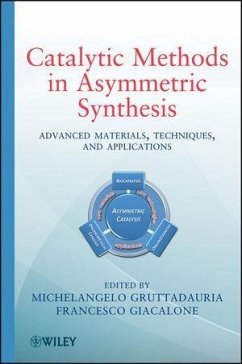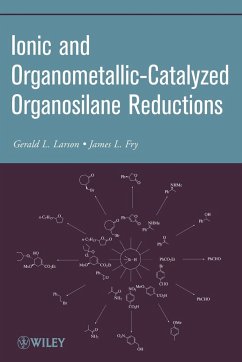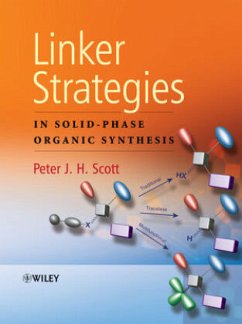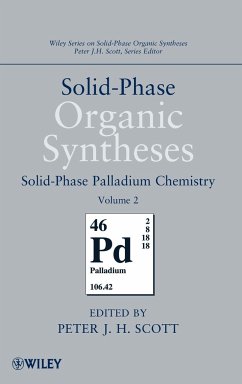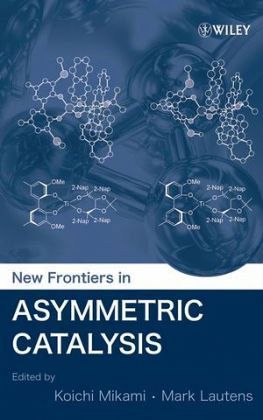
New Frontiers in Asymmetric Catalysis

PAYBACK Punkte
80 °P sammeln!
This field of asymmetric catalysis has grown explosively. Catalytic asymmetric processes promoted by man-made chiral catalysts are becoming a staple of chemical technology. This book covers recent developments and findings in the research, including nonlinear phenomena, auto-catalysis, asymmetric activation, and de-activation of racemic catalysts, as well as asymmetric catalysis of carbon-carbon forming reactions such as "metathesis," a topic of rapidly developing interest.
A compilation of recent advances and applications in asymmetric catalysis
The field of asymmetric catalysis has grown rapidly and plays a key role in drug discovery and pharmaceuticals. New Frontiers in Asymmetric Catalysis gives readers a fundamental understanding of the concepts and applications of asymmetric catalysis reactions and discusses the latest developments and findings. With contributions from preeminent scientists in their respective fields, it covers:
"Rational" ligand design, which is critically dependent on the reaction type (reduction, oxidation, and C-C bond formation)
Recent findings on activation of C-H bonds, C-C bonds, and small molecules (C=O, HCN, RN=C, and CO2) and the latest developments on C-C bond reorganization, such as metathesis
Advances in "chirally economical" non-linear phenomena, racemic catalysis, and autocatalysis
Some of the recent discoveries that have led to a renaissance in the field of organocatalysis, including the development of chiral Brönstead acids and Lewis acidic metals bearing the conjugate base of the Brönstead acids as the ligands and the chiral bi-functional acid/base catalysts
The book ends with a thought-provoking perspective on the future of asymmetric catalysis that addresses both the challenges and the unlimited potential in this burgeoning field. This is an authoritative, up-to-date reference for organic chemists in academia, government, and industries, including pharmaceuticals, biotech, fine chemicals, polymers, and agriculture. It is also an excellent textbook for graduate students studying advanced organic chemistry or chemical synthesis.
The field of asymmetric catalysis has grown rapidly and plays a key role in drug discovery and pharmaceuticals. New Frontiers in Asymmetric Catalysis gives readers a fundamental understanding of the concepts and applications of asymmetric catalysis reactions and discusses the latest developments and findings. With contributions from preeminent scientists in their respective fields, it covers:
"Rational" ligand design, which is critically dependent on the reaction type (reduction, oxidation, and C-C bond formation)
Recent findings on activation of C-H bonds, C-C bonds, and small molecules (C=O, HCN, RN=C, and CO2) and the latest developments on C-C bond reorganization, such as metathesis
Advances in "chirally economical" non-linear phenomena, racemic catalysis, and autocatalysis
Some of the recent discoveries that have led to a renaissance in the field of organocatalysis, including the development of chiral Brönstead acids and Lewis acidic metals bearing the conjugate base of the Brönstead acids as the ligands and the chiral bi-functional acid/base catalysts
The book ends with a thought-provoking perspective on the future of asymmetric catalysis that addresses both the challenges and the unlimited potential in this burgeoning field. This is an authoritative, up-to-date reference for organic chemists in academia, government, and industries, including pharmaceuticals, biotech, fine chemicals, polymers, and agriculture. It is also an excellent textbook for graduate students studying advanced organic chemistry or chemical synthesis.




